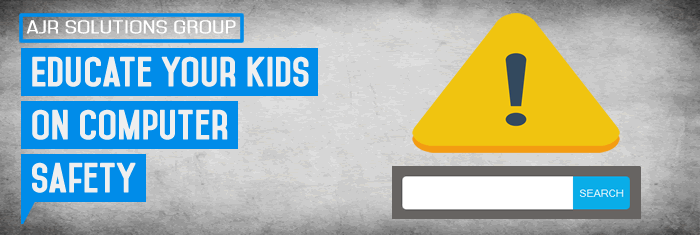As a parent, one of the most important jobs that you will ever have involves keeping your kids safe and secure at all times. This is difficult enough when they leave the house each day, and exponentially harder when they have access to the Internet.
From the moment your kids start using the computer, it should be your top priority to teach them about computers and online safety. Here are a few tips to get started.
Establishing Rules
One of the most important steps that you can take to educate your kids on computer safety involves laying down rules that they will stick to at all times. Teach your kids about how important it is to never give out personal identifying information like telephone numbers, addresses, and birth dates without your permission.
Additionally, teach them about the importance of coming to you immediately if something on the computer makes them uncomfortable. In most cases you can take the opportunity to sit down and have a real conversation about the content that they find objectionable. You can also take the opportunity to identify other potential threats.
Warn your children against ever arranging to meet someone in person who they’ve been chatting with online, or provide photos at the other person’s request.
Educating Your Kids about Threats
When discussing computer safety, it’s important to grasp the idea that it isn’t just people with malicious intentions that you need to be concerned with. If your kids are going to be spending time online, also take the opportunity to teach them about viruses, worms, and other types of malware that may compromise your personal computer. Teach your kids about the most common ways that computer worms are transmitted, for example, which usually involves e-mail attachments from unknown recipients. Also teach your kids about the dangers of peer-to-peer file sharing networks, and how they are also one of the most common ways that computer worms spread online.
Most of all, take the time to teach your kids about the importance of protecting yourself and your family members against these types of malicious programs through the use of antivirus and antimalware solutions. Doing so at an early age will help kids avoid the types of mistakes that could result in a virus being accidentally downloaded to your home computer, smartphone or tablet.
So long as your kids are using a device that is connected to the Internet, it’s crucial that they understand just how important these safe practices really are.
Social Networking
As social networking becomes increasingly popular, it is also important to keep a watchful eye over the ways in which your kids are interacting on sites like Facebook and Twitter. According to the identity theft protection service LifeLock, even seemingly innocuous information posted on social networking sites can be used to guess answers to security questions, gain access to account passwords, and steal a person’s identity.
Let your kids know that it is okay to share certain innocent types of information on social networking sites, but be judicious regarding the personal information you prohibit.


